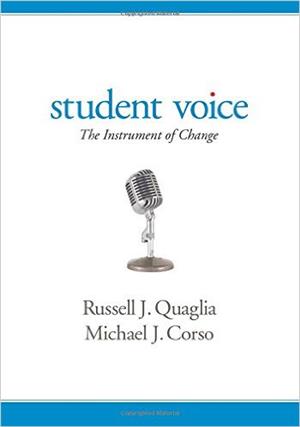- Escambia County Public Schools
- ECPS Student Perception Survey
Professional Learning
Page Navigation
- Home
- About
- Contact Team Members
- Spencer Bibbs Room Reservation
- Inservice Requirements For Recertification
- Add-On Endorsements & Certifications
- Professional Learning Catalog
- Professional Learning Management System (PLMS)
- Escambia Leadership Induction Program (ELIP)
- Alternative Certification
- Teacher Certification
- Escambia Educator Evaluation (E3) and Professional Development Plan (PDP)
- ECPS Student Perception Survey
ECPS Student Perception Survey
-
ECSD Student Perception Survey will be available on Monday, April 22, 2024.History of ECSD Student Perception Survey
During the 2015-16 school year, the Escambia County School District, in collaboration with the local teachers' union, developed the ECSD Student Perception Survey to be administered during the Spring semester of each school year. The survey will provide students in grades three through twelve with an opportunity to give feedback to his/her teachers concerning the learning environment and instruction for this school year. The ECSD Student Perception Survey expands the district’s effort to listen and learn from the people we serve. Our district already provides opportunities for parents and employees to give feedback about our system and the services we provide.This is another intentional effort to move our district’s vision statement from words to reality:“Create a district where students want to learn, parents want to send their children, teachers want to teach, and employees want to work.”
Purpose, Design, & General Information
Purpose:
Provide students in grades three through twelve an opportunity to give feedback their learning environment conditions as well as how effective the teacher was able to provide instruction for the student.Benefits:
Students are given a voice about their learning experience and teachers can identify strengths and areas to seek professional development to improve student perceptions of the teacher’s instructional effectiveness and the learning culture within the teacher’s classroom.Relevance:
All survey items measured in the ECSD Student Perception Survey are linked to components within the Danielson’s Framework for Teaching. Therefore, professional development is already linked and available for teachers who want to improve a specific area of his/her professional practice.
Design:There are three versions of the ECSD Student Perception Survey:
- Elementary (grades 3-5)
- Middle Grades (grades 6-8)
- High School (grades 9-12)
The survey is administered via a secured Google Form. The survey will only be available on the district wide designed day and will no longer be available at the conclusion of the said date.
Students will be required to login to the survey. However, the responses are not linked to the user’s id. The login step is a requirement to ensure that the specific student is only providing feedback to a specific teacher at one time. The responses are not linked to the student’s ID. Therefore, the responses are completely anonymous.
The survey items are written for students to respond in a multiple choice format.
Timing:
The ECSD Student Perception Survey will be administered during the Spring semester of each school. The survey will be administered in a single day and on the same exact day district wide. The Survey was designed for students to complete the survey in about twenty minutes.Scoring:
Research Supporting Use of Student Perception Surveys
3.5 - 4.0 = Highly Effective
2.5 - 3.49 = Effective
1.5 - 2.49 = Needs Improvement
1.0 - 1.49 = Unsatisfactory
An interview from the author of
Student Voice:
The Instrument of Change
Well-designed student surveys help
teachers improve their practices
By Vickie Phillips
Published in Principal Leadership | March 2013
ASKING STUDENTS ABOUT TEACHING
Student Perception Surveys and Their Implementation
Research report by
Measure Effective Teaching
(MET) Project
In an interview, educational researcher, John Hattie said:
“Start by seeking feedback”
What is your advice to teachers who want to try "visible learning" in their classroom (tomorrow)?
Start by seeking feedback about their impact.
Say: “I am an evaluator of my teaching.
Who has learnt or not, about what, is it efficient, where to next …”
This is an excellent starting point.
And I implore you to read Visible Learning
for teachers which elaborate more on this.
Link to Surveys
-
Survey Administration Instruction
Canvas LMS:
Not Canvas LMS:
Data ResultsProfessional Development OpportunitiesOnline PD resources linked to the categories (E3 components) that the students provided feedback.

